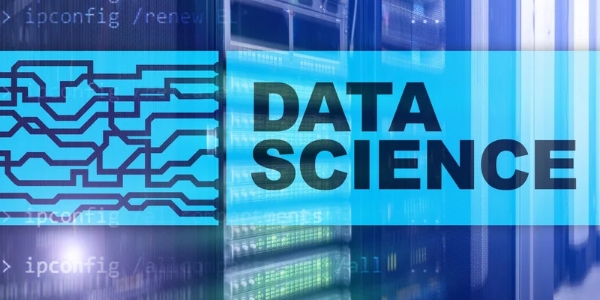In the digital-first era, data isn’t only numbers — it’s a business driver, a healthcare decision-maker, a finance allocator, a sports predictor, and nearly any industry’s decision-maker. With companies gathering huge volumes of data, the demand for data analysts and interpreters has increased exponentially. That’s driven data science into the ranks of the world’s fastest-growing and best-paying careers. Online Data Science Degree
It used to require an elite university degree and the luxury of spending time in a classroom in order to become a data scientist. No longer. Online degree programs in data science are now offering students — high school graduates, career professionals, and everyone in between — an affordable, convenient, and highly successful way of gaining the skills required for this challenging and fulfilling career.
Whether you want to change careers, upskill, or begin anew in the tech industry, this guide will take you through everything you need to know about obtaining a data science degree online: what you’ll learn and best programs on offer, to possible career opportunities and how to select the best course to meet your objectives.

What is Data Science?
Data science is the field that applies scientific processes, algorithms, and systems to extract insights and meaning from structured and unstructured data. It is a combination of computer science, statistics, and domain knowledge to transform raw data into information that can inform decision-making.
In effect, data science is asking the right questions, gathering the right data, examining it, and using the findings to make smart decisions. It is used whether one is trying to predict what the customer will do, optimize supply chains, or enhance health care outcomes.
Key Components of Data Science:
- Data Collection: Gathering data from various sources like websites, databases, IoT devices, etc.
- Data Cleaning & Preparation: Removing errors, handling missing values, and organizing data for analysis.
- Statistical Analysis & Modeling: Using math and algorithms to understand trends, patterns, and relationships.
- Machine Learning: Teaching computers to learn from data and make predictions or classifications.
- Data Visualization: Creating charts and dashboards to help stakeholders understand complex findings easily.
Example: Suppose a retail business wishes to sell more. A data scientist is able to examine customers’ purchasing patterns, forecast what items will be in demand, and enable the business to stock the appropriate inventory — saving it money and making more profit.
Why Choose an Online Data Science Degree?
In the 21st century, learning does not have to be associated with a physical classroom. An online degree in data science provides an accessible, convenient, and usually less expensive route into one of the most sought-after careers of the 21st century. Following are some of the reasons why more and more students and professionals are opting for going online:In the 21st century, learning does not have to be associated with a physical classroom. An online degree in data science provides an accessible, convenient, and usually less expensive route into one of the most sought-after careers of the 21st century. Following are some of the reasons why more and more students and professionals are opting for going online:
🔹 Flexibility That Fits Your Schedule
Online courses enable you to learn at your own convenience, meaning education is less complicated to mix with work, family, or other activities. As a professional or a busy parent with a busy home to take care of, you are able to watch lectures, assignments, and discussions at any time and place.
🔹 Access to World-Class Education From Anywhere
Geography is no longer an obstacle. Online degrees provide access to the world’s top universities and subject matter experts worldwide—without a relocation or drive. You can learn at home and still get a degree that is accepted anywhere in the world.
🔹 Cost-Effective Learning
Most online courses cost less than on-campus courses. You also avoid the cost of transportation, accommodation, and other campus charges. Some websites also provide free trial courses or financial assistance.
🔹 Learn the Tools of the Trade Online
Data science is a computer-based field. That is, all that you will be using in software, tools, and platforms—such as Python, SQL, R, or cloud computing platforms—is something you can learn and use in a virtual environment, just as if you were doing so in real life.
🔹 Stay Career-Ready While You Learn
One of the most significant advantages of learning online is that you get to implement what you’re learning in real time. Many students continue to work full-time while pursuing their degree, and they both gain practical experience and new skills simultaneously. This can set you ahead in the job market.
🔹 Personalized Learning Experience
Sites tend to use advanced technology to make your learning experience more personalized. You can review difficult sections, skip ahead when you’re familiar with the topic, and even get personalized recommendations for additional resources, homework, or peer discussion.
Types of Online Data Science Programs
Online data science courses are available in a range of formats, each of which is designed to be attractive to students at various stages of their academic or professional career. Whether you’re starting out, looking to switch careers, or looking to become an expert, there’s a course for you. Here’s the rundown of the main types:
- Bachelor’s Degree in Data Science (BSc or BA)
An online undergraduate degree in data science is optimum for someone without any or minimum work experience within the field. The degrees normally take 3–4 years to complete and endow the person with sound skills in programming, statistics, data structures, and logical thinking.
Key Features:
- Suitable for high school graduates or early-career professionals.
- Includes general education courses plus major-specific subjects.
- Prepares students for entry-level roles like Data Analyst or Junior Data Scientist.
Example Courses: Introduction to Python, Linear Algebra, Databases, Data Ethics
2. Master’s Degree in Data Science (MSc or MDS)
A master’s is for individuals who already possess a bachelor’s degree (not necessarily in data science) and wish to further their skills or enhance their career. These degrees are completed in 12–24 months and can have specializations such as machine learning, AI, or business analytics.
Key Features:
- More advanced coursework with project-based learning.
- Often includes capstone projects or internships.
- Higher salary potential and access to senior roles.
Example Courses: Deep Learning, Natural Language Processing, Big Data Systems, Predictive Modeling
3. Graduate Certificates & Postgraduate Diplomas
These short courses (usually 6–12 months) are ideal for career professionals who want to skill up quickly without investing money in a full degree. They are usually stackable, in that credits can be transferred later to a master’s degree.
Key Features:
- Focused and intensive.
- Great for career changers or specialists needing formal credentials.
- Lower cost than full degrees.
Example Topics: Applied Machine Learning, SQL for Data Science, Data Visualization
4. Online Bootcamps & Professional Certificates
Bootcamps and certificate programs are provided by platforms such as Coursera, edX, Udacity, and universities. They vary from 8 weeks to 6 months and cover real, job-specific skills.
Key Features:
- Fast-track learning with practical projects.
- Ideal for working professionals or self-learners.
- May include mentorship, career services, or job guarantees.
Popular Programs: Google Data Analytics Certificate, IBM Data Science Professional Certificate, General Assembly Data Science Bootcamp
Which One Should You Choose?
- Beginner or recent graduate? → Go for a Bachelor’s degree.
- Already have a degree and want a career boost? → Opt for a Master’s.
- Looking to upskill quickly? → Consider a Certificate or Bootcamp.
Each path has its own pros and cons, so your decision should align with your career goals, current qualifications, time availability, and budget.
Core Curriculum & Skills Taught
A web-based data science degree is built to provide learners with an extraordinary combination of technical skills, analytical tendencies, and practical application. Though programs will differ slightly between institutions, the majority of them follow a general model and will seek to instill the following core skills:
1. Programming Languages
Learning how to code is a foundational part of data science. Most programs emphasize:
- Python: Widely used in data manipulation, analysis, and machine learning.
- R: Ideal for statistical analysis and academic research.
- SQL: Essential for querying databases and managing data efficiently.
These languages are taught with practical projects so students can build confidence in real-world applications.
2. Mathematics & Statistics
Data science relies heavily on math and statistical concepts. You’ll learn:
- Probability and distributions
- Hypothesis testing
- Linear algebra
- Calculus basics
- Statistical modeling
These skills help you understand the “why” behind the algorithms and how to make data-driven decisions.
3. Data Wrangling & Data Visualization
Before you can analyze data, you must clean and organize it:
- Techniques for dealing with missing or inconsistent data
- Using tools like Pandas, NumPy, and OpenRefine
- Visualization skills using Matplotlib, Seaborn, Tableau, or Power BI to communicate findings effectively
4. Machine Learning & Artificial Intelligence
A big part of advanced data science involves teaching machines to learn from data:
- Supervised & unsupervised learning
- Decision trees, regression models, clustering, and neural networks
- Tools and libraries like Scikit-learn, TensorFlow, or Keras
Courses often include projects such as predictive modeling or building recommendation systems.
5. Big Data Technologies
With massive amounts of data being generated, you’ll learn how to handle and analyze large datasets using:
- Hadoop and Spark for distributed computing
- NoSQL databases like MongoDB
- Introduction to cloud computing (AWS, Google Cloud, Azure)
These tools are essential for working at scale in real-world enterprise environments.
6. Cloud & Data Engineering Basics
Many programs are now including modules on cloud platforms:
- Using AWS S3, EC2, and Google BigQuery
- Understanding how data pipelines and APIs work
- Building and deploying machine learning models in the cloud
7. Capstone Projects & Case Studies
Most degrees include hands-on capstone projects that let you:
- Solve real-world business problems using real datasets
- Build a portfolio to show future employers
- Collaborate in teams and simulate industry workflows
8. Soft Skills & Communication
It’s not enough to analyze data—you must also communicate your insights clearly:
- Report writing
- Data storytelling
- Presentation and visualization skills
Many online programs emphasize teamwork, communication, and ethics in data usage as part of their curriculum.
Career Opportunities After Online Data Science Degree
Pursuing an online data science degree opens up a wide array of high-demand, high-paying careers across many industries. As more and more companies and organizations rely on data-driven decision-making, data analysis, interpretation, and communication professionals are in demand. Some of the most rewarding and in-demand data science graduate careers include the following:
- Data Scientist
Average Salary: $100,000 – $140,000/year
What They Do:
Data scientists analyze complex datasets to identify patterns, trends, and actionable insights. They build predictive models using machine learning and statistical techniques to solve business problems.
Key Skills Needed: Python, R, machine learning, statistics, data visualization.
2. Data Analyst
Average Salary: $60,000 – $85,000/year
What They Do:
Data analysts collect, process, and perform basic analysis on data to help organizations make better decisions. They often work with Excel, SQL, and visualization tools to create dashboards and reports.
Key Skills Needed: Excel, SQL, Tableau/Power BI, data cleaning, basic statistic
3. Machine Learning Engineer
Average Salary: $110,000 – $160,000/year
What They Do:
These professionals design and deploy algorithms that allow machines to learn from and act on data. They focus on building scalable AI models for tasks like recommendation systems, fraud detection, and automation.
Key Skills Needed: Deep learning, Python, TensorFlow, data pipelines, cloud platforms.
4. Business Intelligence (BI) Analyst
Average Salary: $70,000 – $100,000/year
What They Do:
BI analysts transform data into insights that help companies make strategic decisions. They often work closely with management teams to create performance metrics and monitor KPIs.
Key Skills Needed: SQL, dashboards, business strategy understanding, data modeling.
5. Data Engineer
Average Salary: $90,000 – $130,000/year
What They Do:
Data engineers build and maintain the infrastructure and tools needed to collect, store, and process large volumes of data. They play a foundational role in enabling data scientists to access clean and organized data.
Key Skills Needed: ETL pipelines, Python/Scala, cloud services (AWS, Azure), big data tools (Hadoop, Spark).
6. AI/Deep Learning Specialist
Average Salary: $120,000 – $180,000/year
What They Do:
Specialists in artificial intelligence focus on cutting-edge applications such as computer vision, natural language processing, and robotics. These roles are often research-heavy and in high demand in tech companies.
Key Skills Needed: Neural networks, PyTorch/TensorFlow, algorithm development, data annotation.
🌍 Industries Hiring Data Science Graduates:
- Technology (Google, Microsoft, Meta)
- Healthcare (pharma analytics, patient data)
- Finance (fraud detection, credit scoring)
- E-commerce (recommendation engines, customer insights)
- Government (policy planning, public data analysis)
- Marketing & Advertising (consumer behavior modeling)
Conclusion:
With a strong foundation in data science, your degree can lead you into various career avenues towards matching your interests—data systems engineering, user behavior modelling, or leading AI frontier breakthroughs. You’ll have the capability as well as the mobility to be part of the fastest-growing profession this decade with an online degree.





Pingback: Software Development:Trends, Tools, and Best Practices - infoguruji.com